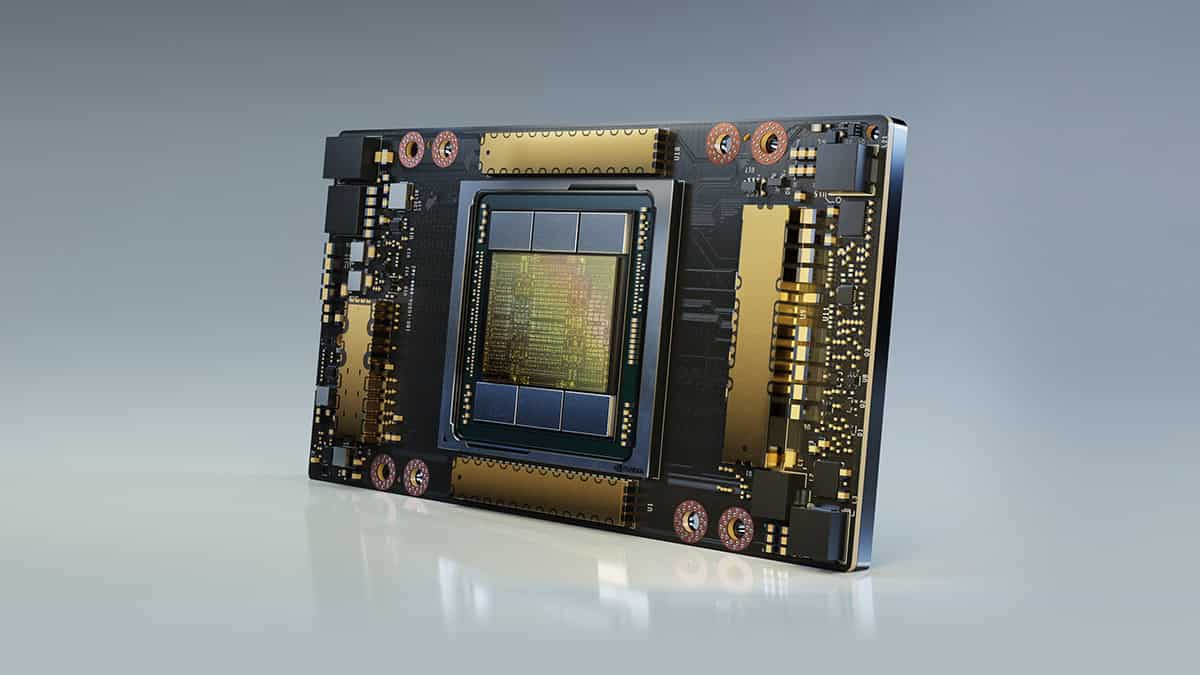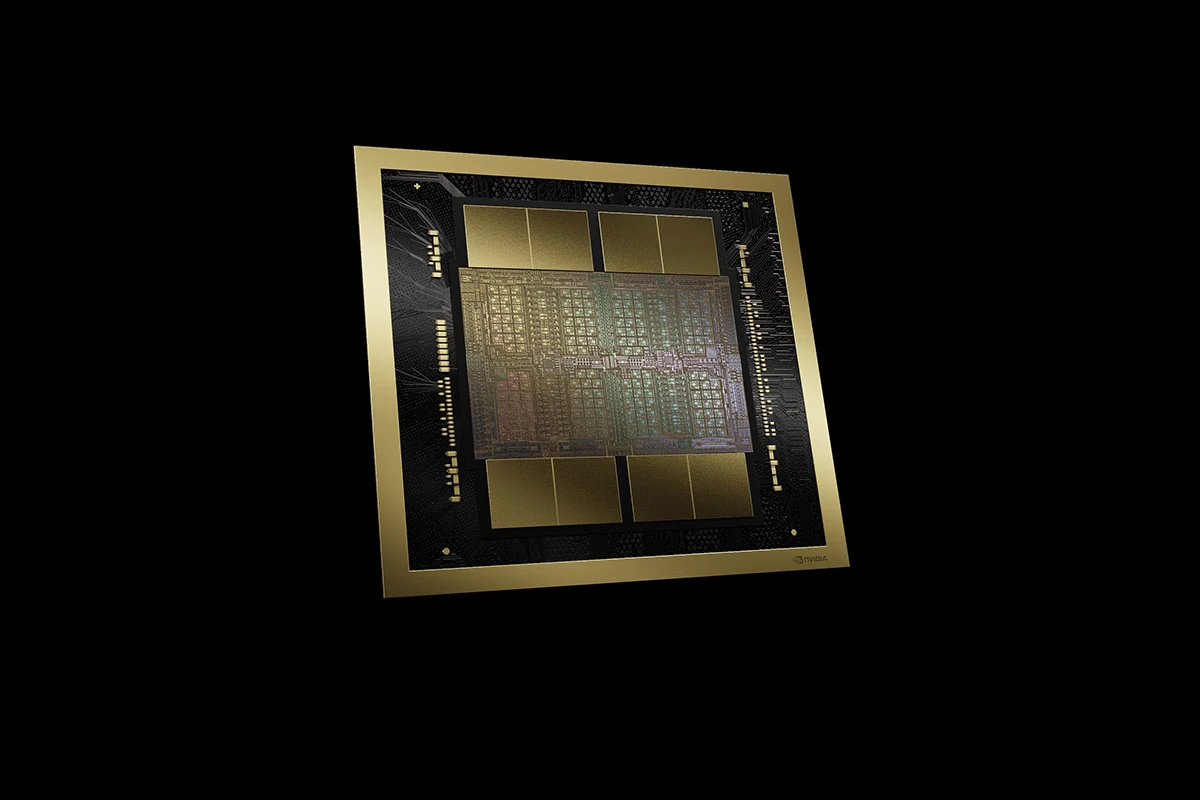Nvidia has made a groundbreaking announcement that will reshape the tech landscape in America. For the first time ever, the chip giant will manufacture its AI supercomputers entirely within the United States. Nvidia plans to produce up to $500 billion worth of AI infrastructure in the U.S. through manufacturing partnerships over the next four years, marking a major shift in domestic semiconductor production.
The company has secured more than 1 million square feet of manufacturing space in Arizona to build and test its advanced Blackwell chips. This move comes as tech companies face increasing pressure to reduce reliance on overseas manufacturing and strengthen domestic supply chains. Nvidia’s decision represents a significant win for American technology leadership and economic security.
This strategic shift aligns with broader national interests in maintaining technological competitiveness while creating new high-skilled jobs across the country. The move positions Nvidia at the forefront of AI innovation while ensuring critical computing infrastructure remains built on American soil.
Nvidia’s Strategic U.S. Expansion: What It Means for AI, Manufacturing, and National Security
Nvidia’s announcement that it will manufacture AI supercomputers in the United States marks a transformative moment—not just for the company, but for the future of American technological infrastructure. The move aligns with growing political pressure to reduce reliance on overseas chip production and is expected to inject momentum into the domestic semiconductor and AI hardware industry.
Key Locations and Partners in the U.S. Manufacturing Push
Nvidia’s plan isn’t a symbolic gesture. It’s backed by significant logistics, partnerships, and facility expansion:
| Location | Facility Type | Partner/Operator | Key Function |
|---|---|---|---|
| Phoenix, AZ | Chip Fabrication | TSMC (U.S. Division) | Manufacturing Blackwell AI chips |
| Houston, TX | Assembly Plant | Foxconn | AI server and system integration |
| Dallas, TX | Assembly & Integration Facility | Wistron | Supercomputer system assembly |
Combined, these locations account for over 1 million square feet of industrial space dedicated to advanced AI hardware.

The Blackwell Platform: Engine of the New U.S.-Made Supercomputers
Central to this initiative is Nvidia’s Blackwell architecture—a generational leap in AI computing. The chips are optimized for large language models (LLMs), real-time inference, and generative AI workloads, making them the backbone of next-gen AI supercomputers.
Top Highlights of the Blackwell Chips:
- Up to 208 billion transistors
- Designed specifically for massive AI training and inference
- NVLink support for ultra-fast GPU-to-GPU communication
- Energy-efficient performance, reducing datacenter power draw
- Native integration with Nvidia’s CUDA software stack
These chips will power systems designed for enterprise, research, and defense use cases—making them key tools for government, cloud services, and AI labs across the country.
Why This Move Matters
Nvidia’s decision intersects several important trends and national interests:
1. Supply Chain Resilience
With increasing geopolitical tensions and global logistics issues, building key AI infrastructure within U.S. borders minimizes risk. Manufacturing domestically reduces dependencies on Asia-based supply chains, particularly Taiwan.
2. Tariff Avoidance and Economic Strategy
By localizing production, Nvidia positions itself to sidestep anticipated tariffs on imported chips and AI systems. Analysts expect these tariffs to be central in upcoming trade policy shifts—especially with renewed U.S.-China tech tensions.
3. Job Creation and Economic Growth
While Nvidia is a fabless company, its partnerships with TSMC, Foxconn, and Wistron for stateside operations will generate thousands of high-tech jobs in Arizona and Texas.
| Estimated Impact | Figures |
|---|---|
| Direct Jobs Created | ~4,500 across sites |
| Total Economic Impact | $3.6 billion over 5 years |
| Expected Hardware Value (2025–2029) | $500 billion in AI infrastructure |
Political and Industry Reactions
The announcement has already drawn strong reactions from policymakers. Some credit recent policy shifts and proposed tariffs for nudging tech giants toward reshoring. The move is also seen as a symbolic win for U.S. competitiveness in AI, as Nvidia continues to dominate the global AI GPU market.
In the industry, competitors are watching closely. AMD and Intel both have U.S.-based facilities, but Nvidia’s full-stack approach—from chip design to supercomputer systems—gives it a distinct advantage.
What’s Next for Nvidia?
Mass production of these American-made AI supercomputers is expected to begin within 12 to 15 months. Nvidia will continue to work with hyperscalers, government agencies, and enterprise partners to roll out the first wave of U.S.-built systems in 2026. For now, this move signals a powerful pivot toward a more localized, resilient future for high-performance computing in the age of AI.
Key Takeaways
- Nvidia will manufacture AI supercomputers entirely in the U.S. for the first time, investing up to $500 billion in domestic production.
- The company has secured over 1 million square feet of manufacturing space in Arizona with additional facilities planned in Texas.
- This manufacturing shift strengthens America’s technology leadership while creating new jobs and reducing dependency on foreign chip production.
Overview of Nvidia’s U.S. Manufacturing Expansion
Nvidia has made a significant shift in its production strategy by announcing plans to manufacture AI chips and supercomputers on American soil for the first time. This move represents a major change for the tech giant, which has historically relied on overseas production.
Strategic Locations in Arizona and Texas
Nvidia has selected two key states for its manufacturing expansion. The company will build and test its Blackwell chips in Arizona, focusing on the production of these advanced AI processors that power the latest generation of AI systems.
For its AI supercomputers, Nvidia has chosen Texas as its manufacturing hub. The company plans to create new facilities in the state, with possible locations including Houston and Dallas areas. These sites will become what some call “AI factories” – specialized data centers designed to build complex AI systems.
This strategic placement takes advantage of existing tech infrastructure in both states. Arizona already hosts chip manufacturing operations from other companies, while Texas offers strong data center capabilities and a growing tech workforce.
Impact on U.S. Manufacturing Landscape
This expansion will boost American manufacturing in the critical tech sector. Nvidia’s decision comes as concerns about supply chain resiliency have prompted more companies to bring production back to the U.S.
The move will create new jobs in both states. Workers will be needed for everything from chip assembly to complex AI system integration. This helps build a stronger American workforce skilled in advanced manufacturing techniques.
Economic benefits will extend beyond direct employment. The facilities will require support services, material suppliers, and logistics networks. This creates a ripple effect that strengthens regional economies.
Nvidia’s investment strengthens U.S. economic security by ensuring critical AI technology can be produced domestically. This reduces dependency on international supply chains that might face disruptions due to global events or trade tensions.
Collaborations and Technological Advancements
Nvidia’s push to manufacture AI supercomputers in the United States involves strategic partnerships and cutting-edge technological developments. These collaborations are reshaping the landscape of AI computing infrastructure while strengthening domestic manufacturing capabilities.
Partnerships with Foxconn and Wistron
Nvidia has formed key alliances with manufacturing giants Foxconn and Wistron to support its U.S.-based production goals. These partnerships will help Nvidia construct AI supercomputers entirely within the United States.
The collaboration with Foxconn is particularly notable. The Taiwanese manufacturing giant will provide essential assembly and testing services for Nvidia’s advanced AI chips. This partnership extends beyond simple manufacturing to include joint development of AI infrastructure.
Wistron brings additional packaging and testing operations to the table. Their specialized expertise helps ensure the quality and performance of Nvidia’s complex chip designs.
These manufacturing partners will work with chips produced at TSMC facilities in Arizona, creating a complete U.S.-based supply chain. The arrangement addresses both national security concerns and growing demand for domestically produced AI components.
Development of Blackwell Supercomputers
The Blackwell supercomputer architecture represents Nvidia’s most advanced AI computing platform to date. These systems form the backbone of what Nvidia calls “AI factories” – specialized data centers built specifically for AI processing tasks.
Key features of Blackwell include:
- Next-generation GPU architecture
- Improved energy efficiency
- Enhanced processing power for complex AI workloads
- Specialized interconnects for large-scale AI training
Blackwell supercomputers are designed to handle the massive computational demands of modern AI systems. They significantly reduce the time needed to train large language models and other AI applications.
The U.S. manufacturing initiative will focus heavily on these Blackwell chips. Nvidia estimates the production value could reach up to $500 billion for AI tools produced domestically.
Roles of OpenAI, Oracle, and SoftBank
Major tech players are closely tied to Nvidia’s U.S. manufacturing plans. OpenAI stands as one of the primary customers for these American-made supercomputers, using them to power their advanced AI models.
OpenAI’s requirements for massive computing power have helped drive Nvidia’s decision to scale up production. Their continued development of large language models creates steady demand for the most powerful AI chips available.
Oracle provides cloud infrastructure that incorporates Nvidia’s AI supercomputers. This partnership helps deliver Nvidia’s technology to a broader range of enterprise customers through Oracle’s established cloud platforms.
SoftBank, through its Vision Fund investments, supports the broader AI ecosystem that Nvidia’s chips enable. The Japanese conglomerate has positioned itself as a key investor in AI startups that build upon Nvidia’s hardware foundations.
Together, these companies create a network of customers and partners that justifies Nvidia’s major investment in U.S.-based manufacturing capabilities.
Frequently Asked Questions
Nvidia’s move to produce AI supercomputers in the United States marks a significant shift in high-tech manufacturing strategy, bringing advanced computing capabilities to American soil for national security and economic benefits.
What are the capabilities of Nvidia’s AI supercomputers being produced in the United States?
Nvidia’s American-made AI supercomputers will serve as powerful engines for AI factories, which are specialized data centers built specifically for AI processing. These systems will be based on the advanced Blackwell chips.
These supercomputers can handle complex AI workloads including training large language models and running inference tasks at unprecedented speeds. The systems combine cutting-edge GPU technology with high-speed networking and optimized software.
Companies using these supercomputers will be able to develop more sophisticated AI applications that weren’t possible with previous technology generations.
How will Nvidia’s American-made AI supercomputers impact the domestic technology sector?
The decision to manufacture in the US will likely strengthen America’s position in the global AI race. It creates a complete domestic supply chain for critical AI infrastructure.
US tech companies will gain easier access to these powerful computing resources without international shipping delays or supply chain concerns. This local manufacturing may speed up innovation cycles in AI research.
The move also sets a precedent that might encourage other tech manufacturers to bring production back to American soil.
What are the expected economic benefits of Nvidia manufacturing AI supercomputers in the US?
Nvidia has commissioned more than 1 million square feet of manufacturing space in the US, which will create numerous high-skilled jobs in the technology sector.
The expansion into Arizona for chip production and Texas for supercomputer assembly will boost local economies through direct employment and supporting businesses. This manufacturing shift may help reduce the US trade deficit in high-tech goods.
Long-term benefits include developing a stronger domestic workforce skilled in advanced manufacturing and AI technologies.
Which models of AI supercomputers is Nvidia planning to produce within the United States?
Nvidia will produce supercomputers based on its Blackwell architecture in the United States. This represents their most advanced AI chip platform to date.
The company will manufacture these Blackwell chips in Arizona facilities before integrating them into complete supercomputer systems in Texas. These systems will form the backbone of next-generation AI computing infrastructure.
Production is expected to ramp up in the next 12-15 months as the facilities reach full capacity.
How will Nvidia’s shift to US manufacturing affect its collaboration with other technology firms?
Nvidia’s US manufacturing presence will likely create stronger partnerships with American tech companies by enabling faster collaboration cycles and joint development projects. Having production facilities nearby allows for quicker prototyping and testing.
The company will continue its partnership with Taiwan-based manufacturers while building up domestic capabilities. This balanced approach helps maintain existing relationships while developing new ones.
Tech firms focused on AI development may locate their operations closer to Nvidia’s US facilities to benefit from reduced logistics times and closer technical collaboration.
What implications does the production of AI supercomputers in the US have for national security and technological sovereignty?
Building these advanced systems entirely within US borders reduces reliance on foreign manufacturers for critical AI infrastructure. This addresses growing concerns about supply chain security for strategic technologies.
The domestic production of AI supercomputers gives the US government better oversight of technology that has significant national security applications. It helps ensure that advanced computing resources remain available regardless of international tensions.
This manufacturing shift aligns with broader government efforts to secure technological sovereignty in critical areas like artificial intelligence and high-performance computing.







